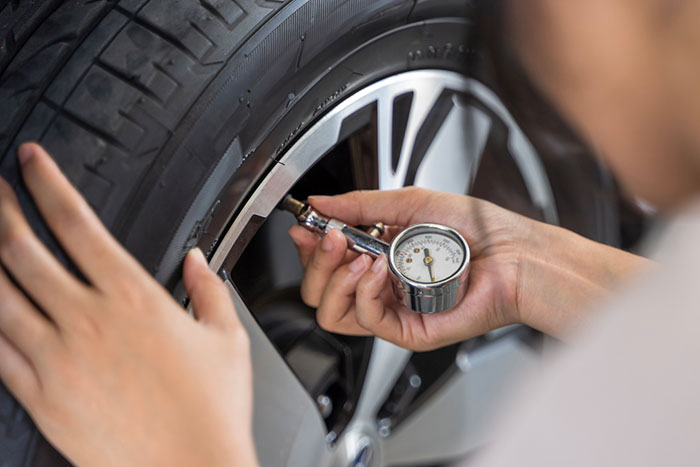
In the revolutionary world of vehicle safety, features like airbags, lane assist, and reversing cameras often steal the spotlight. But one of the lesser-known heroes in road safety is the tyre pressure monitoring system (TPMS).
Many people don’t realise that a TPMS can make a world of difference in how safe – and how enjoyable – their driving experience is. There’s also many common myths about TPMS that need to be debunked – read on as we do just that!
TPMS Are Found in All New Cars
While it’s true that many new cars come factory-fitted with tyre pressure monitoring systems, this is not mandated in Australia. In many countries around the world all new passenger must have these fitted during manufacture. For example, in the USA, since 2007 all cars sold are required by law to have a TPMS installed. Even if your car is relatively new, it may not necessarily have a tyre pressure monitoring system, so be sure to check your owner’s manual, and consider an aftermarket option to enhance your on-road safety.
A Tyre Pressure Monitoring System Cannot be Installed in an Old Car
Some people assume that adding high-tech features like TPMS to older cars would be overly complicated or incompatible with older vehicle electronics. Yet with advancements in technology and the availability of affordable aftermarket options, installing TPMS in older vehicles is not only possible but very straightforward.
Unlike factory-installed TPMS, which is integrated into the car’s central computer system, aftermarket TPMS is designed as a standalone system that doesn’t require complex integration with the vehicle’s electronics.
Adding a TPMS to an older car is a quick, easy, and affordable upgrade that adds modern safety without a high-tech overhaul. With an aftermarket TPMS, older vehicles can benefit from the same enhanced safety, fuel efficiency, and tyre longevity that modern cars enjoy. Don’t let this myth hold you back! A TPMS is an easy and impactful addition to any car, no matter its age!
A Warning Light Always Means Low Pressure
While a warning light can indeed alert drivers to potentially low inflation, it is essential to understand that this indicator may not solely represent low tyre pressure.
In many vehicles, a warning light can also be triggered by other factors such as temperature fluctuations, tyre wear, or even sensor malfunctions. For instance, if the ambient temperature drops significantly, it can cause the air inside your tyres to contract and lead to lower pressure readings. Additionally, if your tyres are unevenly worn or improperly inflated due to previous maintenance issues, the system may misinterpret the data and activate the warning light.
Therefore, when you see a warning light on your dashboard, you should check your tyre pressure but also consider other potential causes.
You Don’t Need to Check Your Tyres if You Have a Working TPMS
TPMS eliminates the need for regular tyre checks, right? Wrong! While a TPMS is a valuable device that alerts you to any significant changes in your tyre pressure, it should not be seen as a complete substitute for manual inspections.
TPMS systems will not detect other critical issues such as uneven wear, punctures, or damage from road hazards. Additionally, TPMS sensors can fail or provide inaccurate readings due to various factors. Therefore, relying solely on this technology can lead to dangerous situations where tyres may be underinflated or compromised without your knowledge.
Regularly checking your tyres, at least once a month and before long trips, is still an essential practices for motorists. While checking inflation is vital, you should also visually inspect the tread depth and look for signs of wear or damage.
Purchase Your TPMS Today
If your car isn’t already fitted with a TPMS, reach out to the team at Safe T Tyre today. We are Australia’s trusted supplier of innovative TPMS devices. Developed to give you peace of mind, improve fuel efficiency and extend the life of your tyres, our products meet the highest Australian safety standards – it’s our aim to make Aussie drivers safer on the road! Call our team on 1800 499 383 to place your order.

